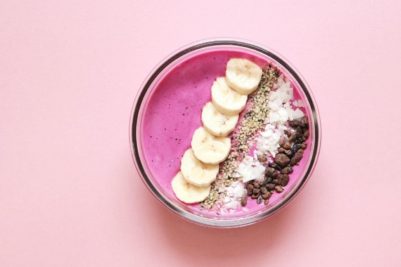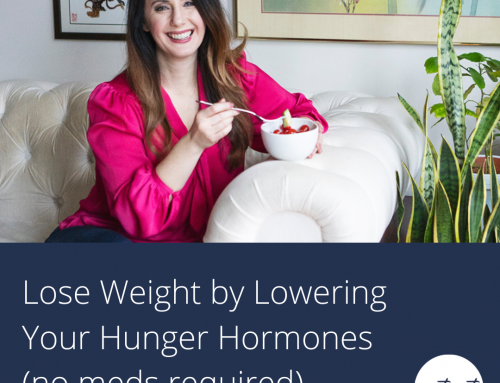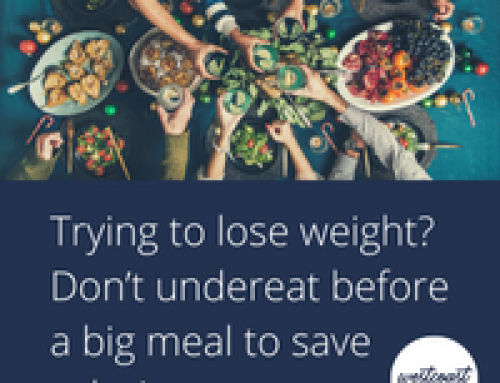How many carbs should you actually eat?! Depending who you talk to carbohydrates are the devil incarnate, or the most essential nutrient and your brain will die without them. It can be so confusing to separate fact from fiction these days. Let’s dive into the science, and why your goals and unique situation matters when it comes to carbs in your diet.
This post is part of a series, the next two parts are here:
You may need less carbs in your diet if…
You may need more carbs in your diet if…
I’ve been presenting to other health care professionals (physicians, dietitians, pharmacists, nurses) this year on Carbohydrate Restricted Diets and Diabetes Remission so have had the chance to really dive deep into the evidence, reflect and challenge my own practice with clients, and also debunk the mythology and hype on both pro and anti-carb sides.
What I’ve discovered is that even health care pros can be subject to both their own bias (of course, we’re all human), and being swayed by hype. I’m happy to now help you find the right fit for carbs for YOU instead of doing whatever Brenda in the office next door is doing.
Myth 1: Everyone should be on a low carb diet.
This is pure fiction. The best evidence for a lower carbohydrate diet is actually in Diabetes remission or reversal. When it comes to weight loss, carbs do matter but a number of whole foods approaches are AS effective in the research and most diets actually fall flat for weight loss (keto included) because they don’t address the underlying sustainability issues. There is also a high degree of individuality in why you might struggle to lose weight, so going straight to a super restrictive diet might do more harm than good.
Younger adults, teens, kids and anyone who is really active and metabolically healthy likely don’t need a low carb diet. A restrictive diet of any kind is also really damaging for kids and teens’ relationship to food and body. This is a huge part of the population! Same goes for elderly, those struggling with muscle loss (like those on chemotherapy, immunosuppressive medications etc).
Truth: You might benefit from looking at your carb intake, but focus on your personal health goals instead of doing what worked for someone else.
Myth 2: You need at least 150 g of carbs in your diet each day for your brain to function.
- Your brain uses a number of other fuels including ketones and lactate. It wouldn’t be evolutionarily smart if our brain was so vulnerable, and you would literally die any time you had to fast before surgery (which of course you don’t). Bodies are smart and adaptable!
- Your body is also 100% capable of making enough carbohydrates from fatty acids, and even proteins if needed, in a process called gluconeogenesis. According to the actual guidelines that determine the Dietary Reference Intakes, there is no minimum need for carbohydrates in the diet.
This does not mean low or no carb is optimal for everyone. Remember there is a big difference between survival and great health, but it does mean that carbs are the nutrient we can play with the most to determine what works best for you.
Myth 3: All carbs break down into sugar in the body, so they are all bad for your health.
Just like the above two, this one is a giant oversimplification. Remember how adaptable and complex our bodies and metabolism are?
It is true that all carbs are broken down into sugar in our body through digestion. We break our food into building blocks so we can absorb it through our gut, and then it can be rebuilt into whatever is needed when it reaches the bloodstream.
The issue here is that we are ignoring how important the absorption rate of carbohydrates is (and not just amount of carbs).
One of the issues with a high carb diet, or a diet with lots of processed carbs (flour based, added sugars etc) is that they are somewhat “pre-digested” so are rapidly absorbed into our bloodstream. This causes a big spike in blood sugar, and in a hormone to deal with all that sugar called insulin. Elevated insulin levels are seen years to decades before we actually see the high blood sugar we use to diagnose Diabetes, are also linked to the development of some cancers, and an increase in production of our lipoproteins that can be a contributor to plaques in your blood vessels and heart disease.
Whole foods carbs such as fruits, whole grains, and starchy veggies (think potatoes, corn, carrots, sweet potatoes etc) are much harder to digest, meaning you get a nice steady and slow rise in blood sugar (think a steady drip instead of a big gulp), which gives you a much more normal and healthy rise in insulin. We can also slow down digestion by adding fats, proteins and fibre to meals with carbs in them.
There are so many more myths and misunderstandings out there! What questions do you have about carbs? Reply and let me know – I’ll either create an email or a social media post to help clear things up.
Should you be high carb, low carb, keto? It depends! Next week we’ll look at how to figure out whether you need more or less carbs in your diet, and dive into why your individual situation matters SO much.
Need some help getting your meals for the week balanced and prepared? If you’d like to receive our free Meal Planning Getting Started Guide AND get in on our weekly emails about all things nutrition so you can get clarity and confidence on what you’re eating, join us here!







